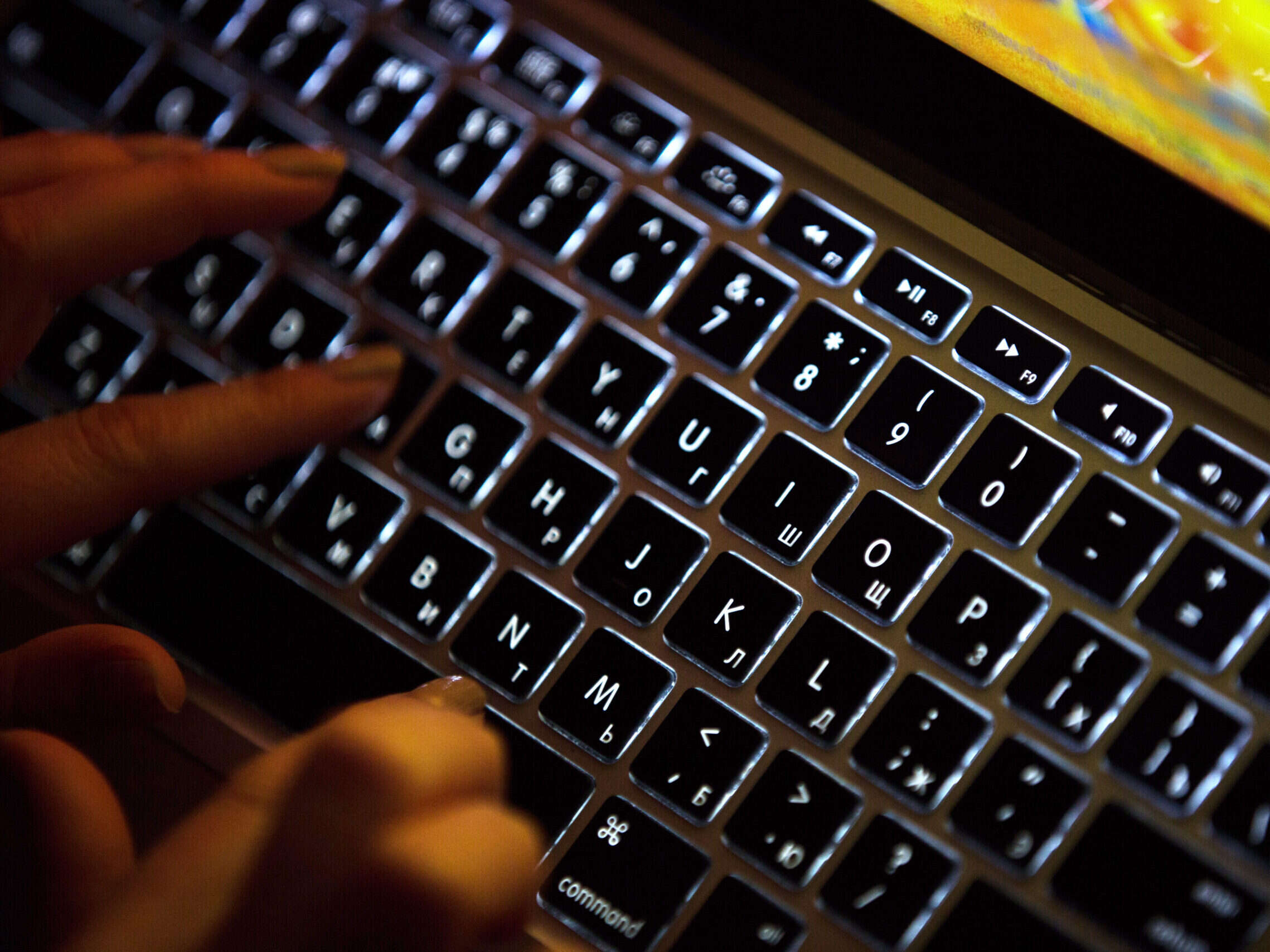
Politicians and tech giants have been urged to take action against “gendered disinformation”, while journalists were told pushing online platforms to reveal their algorithms could help.
A panel about the spread of gender-based disinformation, held on Thursday at the third annual Global Conference for Media Freedom in Tallinn, Estonia, heard “political choices” are leaving women and marginalised groups vulnerable to harassment online.
Istanbul-based Azerbaijani freelance journalist Arzu Geybulla said she had been the target of an online harassment campaign that weaponised her gender.
Geybulla said that she had been covering authoritarianism in Azerbaijan for 12 years, “but interestingly enough, it’s not this type of work that’s been used to target me – it’s been mostly my gender and my involvement in the peace process between Azerbaijan and Armenia”.
Geybulla said she was the subject of an investigative piece by a self-described “fact-checking platform” that imitated another, genuine Azerbaijani fact-checking platform. The report, she said, drew largely on false stories published about her by government media, but was nonetheless then spread across social media depicting it “as this very impressive investigative piece”.
She argued that journalists should “continue advocating for platforms to actually disclose their algorithms because we need to have a say in how they’re developed because that affects us immediately, as users, as journalists, as representatives of marginalised groups”.
Geybulla also called for content platforms such as Facebook, Twitter, Reddit and YouTube “to follow the guidelines they signed up to under the Santa Clara principles on transparency and accountability”.
Magnus Ag, a public interest technology adviser at Danish non-profit International Media Support, pointed out that journalists and campaigners do not have access to the data that would provide the “information and knowledge” needed to address these problems.
“In particular, on gendered disinformation, it’s such a new phenomenon at the scale that we see it now, it’s very hard to get the actual data to understand the problem,” he said. “Like there’s individual accounts… But aggregated, what are the patterns? What are the patterns across platforms? And it’s not just the tech companies’ fault… but that limits our basic understanding of ‘what are these data-driven dynamics actually doing to our societies?’”
Ag separately cited the creation and dissemination of fake images depicting women journalists in pornographic scenes as an example of gendered disinformation.
Aside from the issue of harassment via online posts, Mehwish Ansari, head of digital at freedom of expression organisation Article 19, said that marginalised groups – whether by gender, race or those from the global south, for example – also typically lack the resources to maintain robust cyber defences, meaning they are less able to rebut false information and more likely to be the victims of cyberattack.
“Security vulnerabilities in the design of the physical and logical infrastructure that support [marginalised groups] in hosting their content online… create opportunities for exploitation by eavesdroppers that can wean information from the exposed data and then weaponise it for doxing – or by attackers that can then launch technical attacks to overwhelm the infrastructure and bring down the content,” she said.
“If the targets of gender disinformation that are also the most capable of neutralising this disinformation are silenced from responding, whether by intimidation or pure disruption, how can we then accept that these are equitable platforms for expression?”
Ansari argued that these vulnerabilities were the result of political inaction, and that civil society groups should be included in the creation of web and other technology protocols.
“I want to be clear, these are political choices,” she said. “It’s a series of decisions that determine which communities are worth infrastructure investments and robust connectivity that gives them meaningful agency in terms of where to get their information…
“Policymakers have a role in creating a regulatory environment that can shape these decisions.”
Also on Thursday, the conference heard from Liliane Landor, the senior controller of BBC International News and director of the World Service, and Rozita Lofti, the head of BBC News Persian. Ahead of their appearance, the BBC filed its third complaint to the UN in five years over the alleged treatment of its journalists by the Iranian government.
The conference was organised by the Media Freedom Coalition of around 50 countries, which formed in July 2019 at the first conference in London.
Picture: Andrey Rudakov/Bloomberg via Getty Images
Email pged@pressgazette.co.uk to point out mistakes, provide story tips or send in a letter for publication on our "Letters Page" blog
